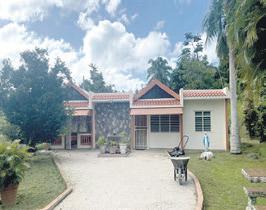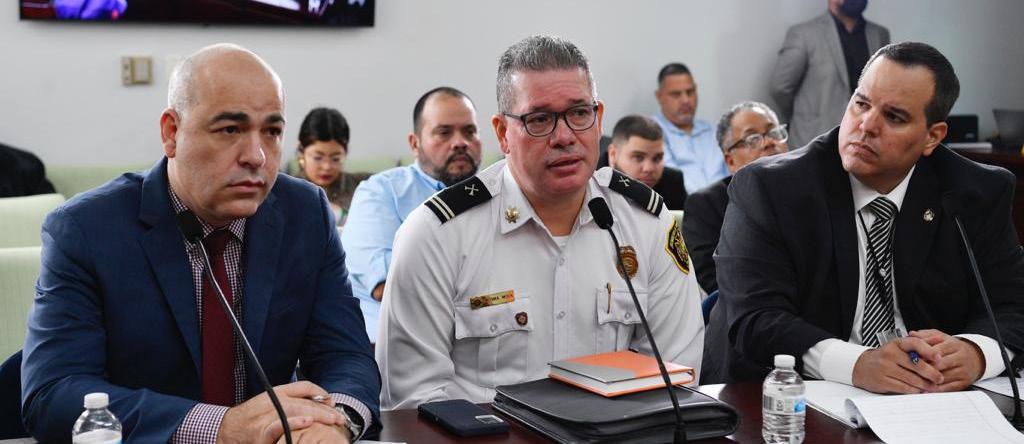
6 minute read
Regulation, productivity and the meaning of life
What makes this strange is that there have been many technological advances since 1970 that should have made it easier and cheaper to build stuff. But none of these advances seem to have paid off.
Klein suggests that the problem may be overregulation in the broad sense, that there are too many “veto points” where vested interests can block construction unless their demands are met. And he may well be right.
Advertisement
presumably more productive).
So part of the productivity slowdown during the 1970s probably represented not so much a loss of dynamism as a shift in priorities — deliberate choices to make workplaces safer and skies cleaner, even at the expense of production.
By PAUL KRUGMAN
Afew days ago, The New York Times published a very interesting column by my colleague Ezra Klein about America’s peculiar lack of progress in the art of building things. Drawing on a recent paper by Austan Goolsbee and Chad Syverson, he noted that, at least according to official statistics, we’ve gone a halfcentury without any rise whatsoever, and maybe even a decline, in construction productivity — basically, the number of person-hours it takes to build a house or other structure of a given size.
But his discussion had me thinking about a debate in economics that I’m old enough to remember taking place in real time: the attempt to explain the drastic economywide slowdown in productivity growth in the 1970s. This debate had a lot in common with the current discussion of construction productivity. And it also raises some questions about whether productivity is the right measure of economic success.
Productivity grew rapidly for several decades after World War II, doubling in a generation. Then it slowed drastically for many years. The revival of growth after 1990 — probably driven by information technology — and its more recent stagnation are interesting stories too, but they are not my subject today.
Were these choices defensible? Definitely yes. Could the policies have been better applied? Of course — but when isn’t that true?
Now, I am quite willing to believe that the trade-offs on construction have been much worse than average, without equivalent social benefits to those 1970s policy choices. The problems with NIMBYism are huge and obvious, and they’re presumably part of a larger picture in which too many interest groups have the power to make construction difficult, even when those projects would be very much in the public interest. Nonetheless, it’s important to realize that making it easier for businesses to do what they want isn’t always a good thing.
And the broader lesson is that measured productivity isn’t the only thing that matters. What, after all, is the economy for? The goal is to improve people’s lives. This is often achieved by increasing gross domestic product per capita, but GDP is an indicator, not an ultimate goal. We could have a bigger economy if we were willing to have filthy air and a lot more injured workers, but that’s not a trade-off we want to make.
JUNCOS
JUNCOS
URB. VILLA ANA amplia residencia de 5h y 2b s,c,c, family, balcón, terraza, y con más de 3000 mts de terreno llano. llame para cita!
Ideal para hogar de cuido para envejecientes ó de niños.
Tienes que verla!
Gran oportunidad!
$239K O.M.O.
URB. VIRGINIA
VALLEY Res. de 3h, 1b, s, c, balcón, marq., calentador solar, cisterna y con sistema de placas solares saldas
$134,000 .M.O.
RIO PIEDRAS
RÍO PIEDRAS
SECTOR TORTUGO
Propiedad sin
Ruddy Hernández REAL ESTATE REBAJADO
Calle Rubí #27 Villa Blanca, Caguas Lic. 9551
787-436-4215 terminar, con solar de 417 mts, frente al centro comunal precio $35,000 O.M.O.
787-593-3846 aprox. completamente llanos facilidades de agua y de luz $69,000 OMO
C/Angel M Ortiz-
Urb Paradis 2H/1B
The question is: What happened to productivity during that dip in the 1970s? One popular theory at the time, with some empirical backing, was that at least some of the slowdown reflected increased government regulation. The Environmental Protection Agency came into existence in 1970, and the Occupational Safety and Health Administration in 1971. Both imposed an array of new rules on businesses, and it’s not difficult to imagine that these rules had some adverse impact on worker productivity.
S,C,C, Balcon
$575 Renta O.M.O.
But does that mean that increased regulation was a bad thing? Not necessarily.
VENTA SOLAR venta solar CATAÑO
BO. AMELIA, SECT. VIETNAM, CERCA DE LA PUNTILLA.
Solar de 665 Mts,
Alquiler casa
ALQUILER CASA
CAGUAS-VILLA
BLANCA 4H/2B S, C, C, Marq Ext, Laundry, Balcón
$850 Renta O.M.O.
CAGUAS-PUEBLO-
Alquiler Comercial
ALQUILER COMERCIAL
CAGUAS
AVE. DEGETAUIdeal para oficinas.
A/C Central
$1,500 Renta
¡Llame para Cita!
CAGUAS HACIENDA SAN JOSÉCOND. PUERTA DEL PARQUE

Excelente Pent House 3H, 2B,s,c, cocina nueva, 3 garajes para auto, laundry, fac. piscina, canchas tenis y baloncesto, $259,000 O.M.O.
VENTA CAGUAS - URB. LA ESME -
RALDA - Propiedad de 3H / 2B
S, C, C Marq; Laundry, Storage con 2H / 1B, Control de Acceso, Tres Cuerdas de Terreno $250,000 O.M.O.
In 2020, the Bureau of Labor Statistics released a 50-year retrospective on OSHA, and it turns out that American workplaces in the early 1970s were very dangerous places by modern standards. And I don’t know about you, but a greatly reduced probability of getting injured or sick on the job seems like progress to me.
It is not, however, progress that shows up in measures of real gross domestic product and hence in productivity data. So productivity numbers show only the costs, not the benefits, of safety regulations.
The same is true for environmental regulations. And the EPA has done systematic studies of the costs and benefits of the Clean Air Act, which find that the benefits, many of them in the form of improved health, have greatly exceeded the costs.
Again, however, the benefits don’t show up in measured productivity, except possibly with a long lag (because healthier workers are
743-5606 • Fax (787) 743-5100
Dr. Ricardo Angulo Publisher
Manuel Sierra General Manager
María de L. Márquez
Business Director
R. Mariani Circulation Director
Lisette Martínez
Advertising Agency Director
Ray Ruiz Legal Notice Director
Sharon Ramírez Legal Notices Graphics Manager
Aaron Christiana Editor
María Rivera Graphic Artist Manager
Por El Star Staff
EL CAPITOLIO – Brannen McElmurray, presidente de Genera PR, empresa contrada por el gobierno para operar la generación de energía eléctrica, compareció hoy, jueves, ante una vista pública de la Comisión de Energía, que investiga los acuerdos contractuales entre la compañía y el gobierno de Puerto Rico.

Durante la segunda vista pública sobre el contrato de energía, los representantes centraron sus preguntas sobre las capacidades fiscales, de administración y cumplimiento de Genera PR, que es una subsidiaria de la empresa New Fortress Energy (NFE).
Por los pasados años, NFE ha ofrecido servicios de construcción de infraestructuras energéticas al gobierno de Puerto Rico. En el tiempo que han laborado en la isla, la empresa ha recibido múltiples señalamientos y demandas sobre incumplimiento contractual y asuntos ambientales.
“Cuando construyeron el muelle en San Juan tuvieron problemas con el cumplimiento. Cuando construyeron las plantas de energía hubo señalamientos ambientales.
¿Ahora por fe tenemos que creerle que este acuerdo es bueno para el país?”, planteó el presidente de la Comisión, Luis R. Torres Cruz.
McElmurray, quien también ocupa el puesto de jefe de Desarrollo de NFE, señaló “que la confianza del pueblo se gana y no se otorga”, reconociendo los planteamientos del legislador independiente.
Por su parte, el jefe de Genera PR expuso a través de una ponencia escrita que la compañía está integrada por “un experimentado equipo de ejecutivos y socios con amplia experiencia en el campo global y local de la energía, combustible, y operaciones”.
Durante el interrogatorio, McElmurray expresó que los trabajos principales de la empresa serán bajo subcontratación. ¿Entonces, qué hace Genera PR aquí?, indicó el presidente de la Comisión. El ejecutivo de Genera PR detalló que contratarán a PIC Group, para que asuma el proceso de contratación de empleados para las plantas, el desarrollo de adiestramientos y el procedimiento operacional.
EL CAPITOLIO – La Comisión de Seguridad Pública, Ciencias y Tecnología inició hoy el proceso de vistas públicas sobre el Proyecto de la Cámara (PC) 1233 que busca establecer la ‘’Ley del Cuerpo de Bomberos del Estado Libre Asociado de Puerto Rico’’.
A la audiencia pública, presidida por el representante Luis ‘’Narmito’’ Ortiz Lugo, compareció el Departamento de Seguridad Pública (DSP) junto al Negociado del Cuerpo de Bomberos de Puerto Rico (NCBPR) y el Negociado del Cuerpo de Emergencias Médicas (NCEM).

La legislación en discusión pretende la creación de un Cuerpo de Bomberos, concediendo facultades y poderes al Director Ejecutivo y la consolidación del NCBPR y el NCEM, bajo una sola estructura a cargo del manejo de las funciones operacionales de ambos Negociados y no como entidades adscritas al DSP.
Ante esa posibilidad, el Lcdo. Miguel Candelario Piñeiro indicó que la postura del DSP es en contra del proyecto.
‘’Mediante la creación del DSP y nuestra integración como Negociados, se ha logrado optimizar la gestión administrativa y fiscal garantizando la comunicación, cooperación e interconexión de todos los componentes de seguridad del Gobierno de Puerto Rico’’, expresó Candelario Pineiro.
‘’Tanto el NCBPR como el NCEM, mantienen su actividad operacional como ordinariamente se ha establecido. Los esfuerzos de integración de estos Negociados al DSP van dirigidos a diseñar y aprobar las estructuras de nuestro Departamento en cumplimiento con la Ley 20’’, puntualizó.
Reacciona OGP
Por parte de la Oficina de Gerencia y Presupuesto (OGP), su asesor en asuntos legislativos, Roberto Rivera indicó que el Proyecto puede tener un impacto significativo desde el punto de vista presupuestario y gerencial. ‘’Esto debido a que la medida reestructura al DSP y propone la creación de un nuevo cuerpo no contemplado por el Plan Fiscal vigente’’.










